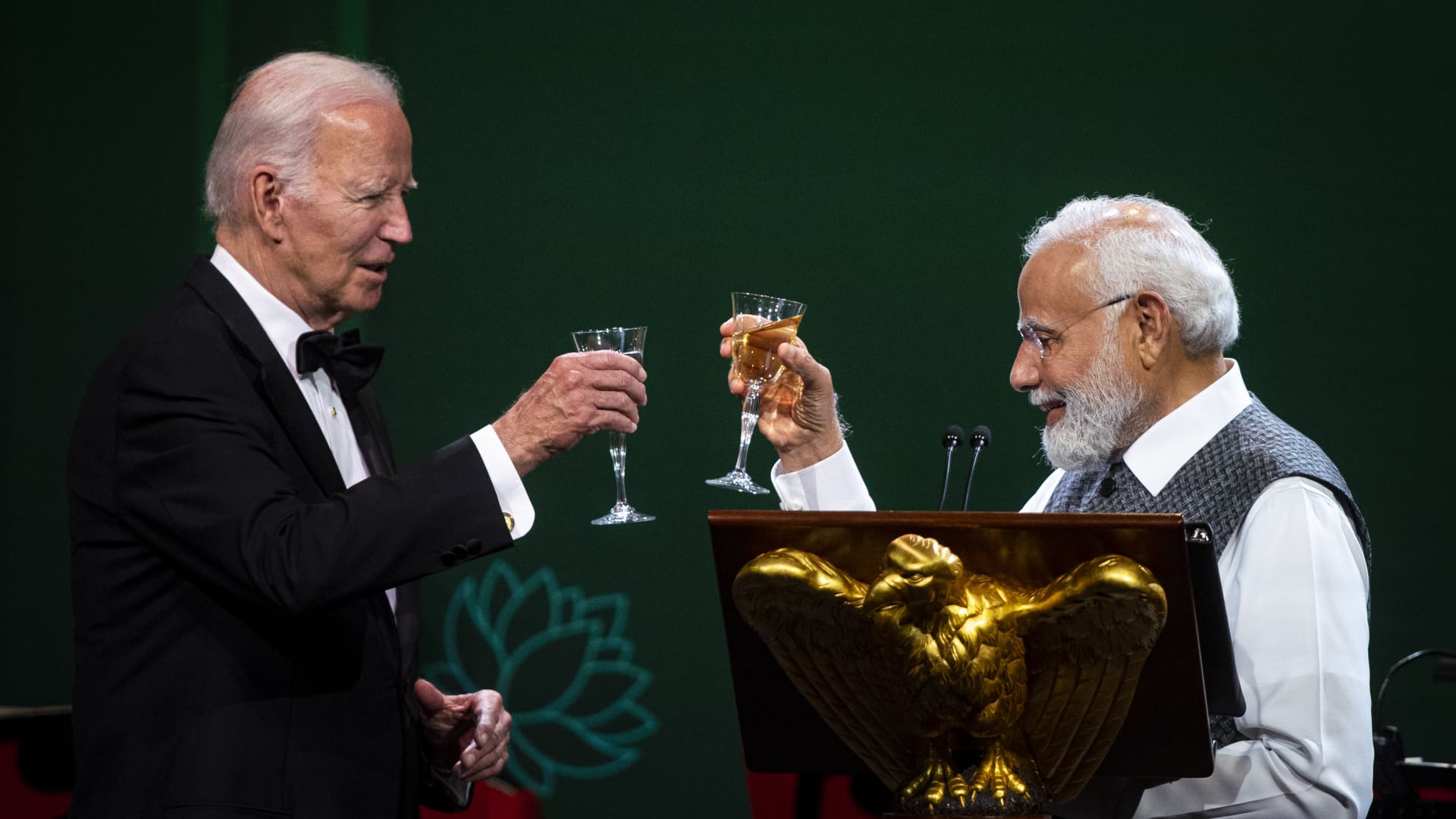U.S. President Joe Biden and India’s Prime Minister Narendra Modi came together for a state dinner at the White House, marking a new chapter in U.S.-India relations. During a speech to the joint session of the U.S. Congress, Modi emphasized the importance of collaboration on semiconductors and critical minerals, highlighting the positive impact it can have on global supply chains. Experts predict that the relationship between the two countries will continue to strengthen, leading to more technology and defense deals.
Atul Keshap, president of the U.S.-India Business Council and former charge d’affaires at the United States Embassy in New Delhi, expressed his optimism about the future of the partnership, stating that it will be beneficial not only for democracy but also for the Indo-Pacific region and the world.
The recent defense deals between the U.S. and India involve initiatives such as the production of General Electric F414 jet engines in India and the repair of U.S. Navy ships in Indian shipyards. However, it is important to note that the U.S. and India are not formal allies, and their relationship differs from those of other countries in the region. Raymond Vickery, senior associate in U.S.-India policy studies at the Center for Strategic and International Studies, emphasized that while the Biden administration values the strategic and economic relationship with India, it is not based on India’s alignment with the U.S.
Looking ahead, the U.S. and India are expected to pursue more technology deals as part of their “friend-shoring” strategy, which aims to diversify away from China and tap into the potential of other regional countries. By sharing critical technologies, the U.S. can help India develop its own defense manufacturing base. Collaboration in sectors such as space and artificial intelligence, as well as securing critical mineral supply chains, is also part of the agenda.
Arun Singh, non-resident senior fellow at Carnegie India, stated that the growing partnership between the U.S. and India will lead to further deals and strengthen the mutual confidence between the two nations. He highlighted the significance of Indian origin tech entrepreneurs and CEOs in U.S. innovation leadership and mentioned that Modi’s state visit solidified U.S. investments in Indian critical technology areas.
While the U.S. and India expressed interest in strengthening trade and investment between each other, it is unlikely that a free-trade agreement will be reached in the near future. Both sides have reservations, and comments from politicians indicate a lack of willingness to move forward with such agreements. However, the U.S. and India have made progress in resolving outstanding trade disputes at the World Trade Organization, demonstrating their commitment to improving the trade relationship.
Overall, the recent developments between the U.S. and India signify a deepening partnership and a shared vision for collaboration in various sectors. As the relationship continues to evolve, it is expected to bring about more positive outcomes for both countries and have a significant impact on the global stage.
Denial of responsibility! VigourTimes is an automatic aggregator of Global media. In each content, the hyperlink to the primary source is specified. All trademarks belong to their rightful owners, and all materials to their authors. For any complaint, please reach us at – [email protected]. We will take necessary action within 24 hours.


